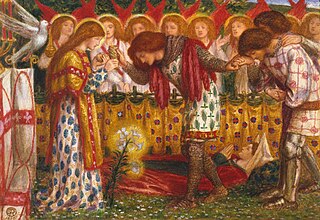John Brown most often refers to:
John Taylor, Johnny Taylor or similar is the name of:
William Jones may refer to:

John is a common male name in the English language ultimately of Hebrew origin. The English form is from Middle English Ion, Ihon, Jon, Jan (mid-12c.), itself from Old French Jan, Jean, Jehan, from Medieval Latin Johannes, altered form of Late Latin Ioannes, or the Middle English personal name is directly from Medieval Latin, which is from the Greek name Ioannis (Ιωάννης), originally borne by Jews transliterating the Hebrew name Yochanan, the contracted form of the longer name Yehochanan, meaning "YHWH is Gracious" or "YHWH is Merciful". There are numerous forms of the name in different languages; these were formerly often simply translated as "John" in English but are increasingly left in their native forms.
William Allen may refer to:
James Wilson may refer to:
John Freeman may refer to:
William, Will, Bill, or Billy Davies may refer to:
George Harris may refer to:
Thomas Lewis may refer to:
William or Will Evans may refer to:

Alfred is a masculine given name of English origin, a modern descendant of the Anglo-Saxon name Ælfræd, formed from the Germanic words ælf, meaning "elf", and ræd, meaning "counsel". Its feminine form originating from Romance languages is Alfreda, and diminutives of Alfred include Al, Alf, Alfy, Alfie, Fred, and Freddy. After the 11th-century Norman Conquest, many variants of the name emerged, most of which were not carried to the modern day. Today, Alfred is still in regular usage in a number of different regions, especially Great Britain, Africa, Scandinavia, and North America. It is one of the few Old English names that came into common use in Europe. Its name day is the 3rd of January both in Norway and Sweden.
Chapman is an English surname derived from the Old English occupational name céapmann "marketman, monger, merchant", from the verb céapan, cypan "to buy or sell" and the noun form ceap "barter, business, purchase." Alternate spellings include Caepmon, Cepeman, Chepmon, Cypman(n), and Shapman.
John Smith is a common personal name. It is also commonly used as a placeholder name and pseudonym, and is sometimes used in the United States and the United Kingdom as a term for an average person.

Albert is a masculine given name. It is derived from the Germanic Adalbert and Adelbert, containing the words adal ("noble") and beraht. It is also less commonly in use as a surname. Feminine forms of the names "Alberta" are declining in use.
Robertson is a patronymic surname, meaning "son of Robert". It originated in Scotland and northern England. Notable people and companies with the surname include:
Ebenezer, less commonly spelled Ebenezar, is a male given name of Hebrew origin meaning "stone of the help". The name is sometimes abbreviated as Eben. Ebenezer Scrooge from Charles Dickens's A Christmas Carol has given the name a negative connotation.
Cecil is a usually male given name of Welsh origin.

Augustus is a masculine given name derived from Augustus, meaning "majestic," "the increaser," or "venerable". Many of its descended forms are August, Augusto, Auguste, Austin, Agustin and Augustine. The Greek translation of the title Augustus was Sebastos, from which the name Sebastian descends.

Percival, also spelled Perceval, is a masculine given name derived from the Celtic name Peredur and likely influenced by the Old French percer, meaning pierce and val, meaning valley. The name was likely also influenced by the name Percy. Sir Percival was one of the Knights of the Round Table in Arthurian romance.




